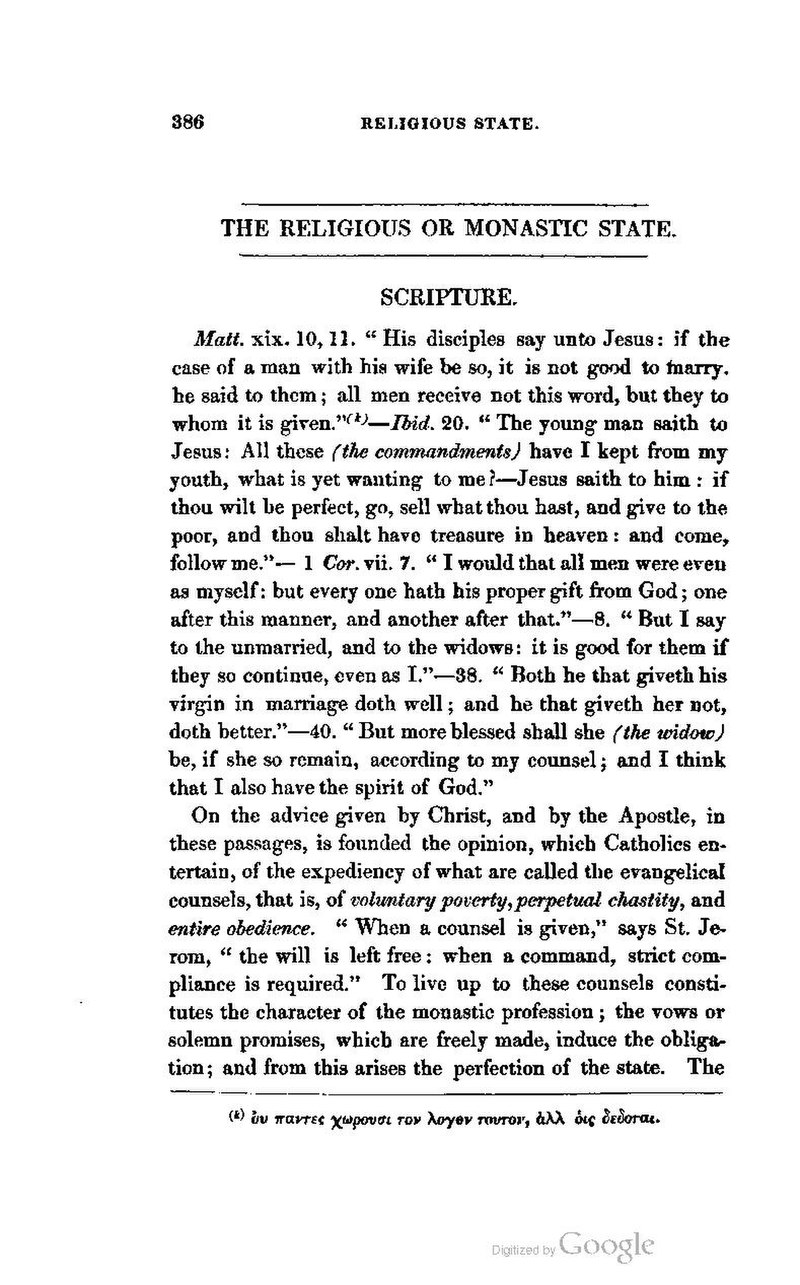THE RELIGIOUS OR MONASTIC STATE.
SCRIPTURE.
Matt. xix. 10, 11. “His disciples say unto Jesus: if the case of a man with his wife be so, it is not good to marry. he said to them; all men receive not this word, but they to whom it is given.” - Ibid. 20. “ The young man saith to Jesus: All these (the commandments) have I kept from my youth, what is yet wanting to me?-Jesus saith to him : if thou wilt be perfect, go, sell what thou hast, and give to the poor, and thou shalt have treasure in heaven : and come, follow me.” 1 Cor. vii. 7. “I would that all men were even as myself: but every one hath his proper gift from God; one after this manner, and another after that.”—8. “ But I say to the unmarried, and to the widows: it is good for them if they so continue, even as I.”—38. “ Both he that giveth his virgin in marriage doth well; and he that giveth her not, doth better.”—40.“ But more blessed shall she (the widow) be, if she so remain, according to my counsel; and I think that I also have the spirit of God.”
On the advice given by Christ, and by the Apostle, in these passages, is founded the opinion, which Catholics entertain, of the expediency of what are called the evangelical counsels, that is, of voluntary poverty, perpetual chastity, and entire obedience. “ When a counsel is given,” says St. Jerom, “ the will is left free: when a command, strict compliance is required.” To live up to these counsels constitutes the character of the monastic profession; the vows or solemn promises, which are freely made, induce the obligation; and from this arises the perfection of the state. The
